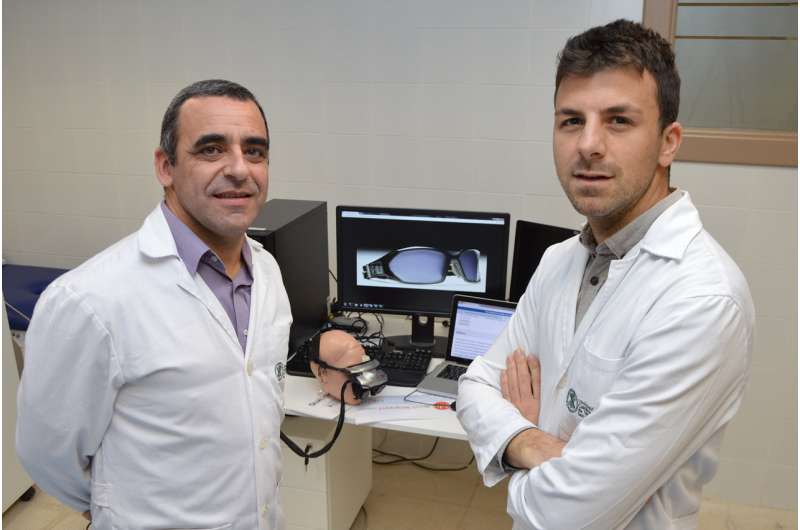Stroboscopic vision enhances sports training efficacy

Rafael Ballester and Florentino Huertas, professors at the department of Science of Physical Activity and Sport of the Universidad Católica de Valencia (UCV), have published an article on the uses of stroboscopic vision in sports in Scientific Reports.
In the study, performed in conjunction with the Brain & Behaviour research group, headed by acclaimed researcher Simon J. Bennett, the effects of stroboscopic vision were tested as a function of time-on-task.
Stroboscopic vision is defined by presenting images in a discontinued manner, similar to watching a film sequence at a slow speed. In the sports sector, different manufacturers have developed glasses that can darken their lenses for short periods of time for a stroboscopic effect to help athletes develop perceptive abilities.
Ballester says, "The main findings of the study suggest that training with stroboscopic vision promotes the maintenance of attention for the entirety of a task of trajectory estimating, stimulating cognitive processes related to speed estimating."
In line with the current study, various approaches have shown positive effects of stroboscopic training on short-term visual memory, speed estimating and specific sport-related abilities in sports such as ice hockey or baseball. This is why athletes such as Steph Curry have added it to their training routines.
More information: Rafael Ballester et al. Stroboscopic vision and sustained attention during coincidence-anticipation, Scientific Reports (2017). DOI: 10.1038/s41598-017-18092-5

















